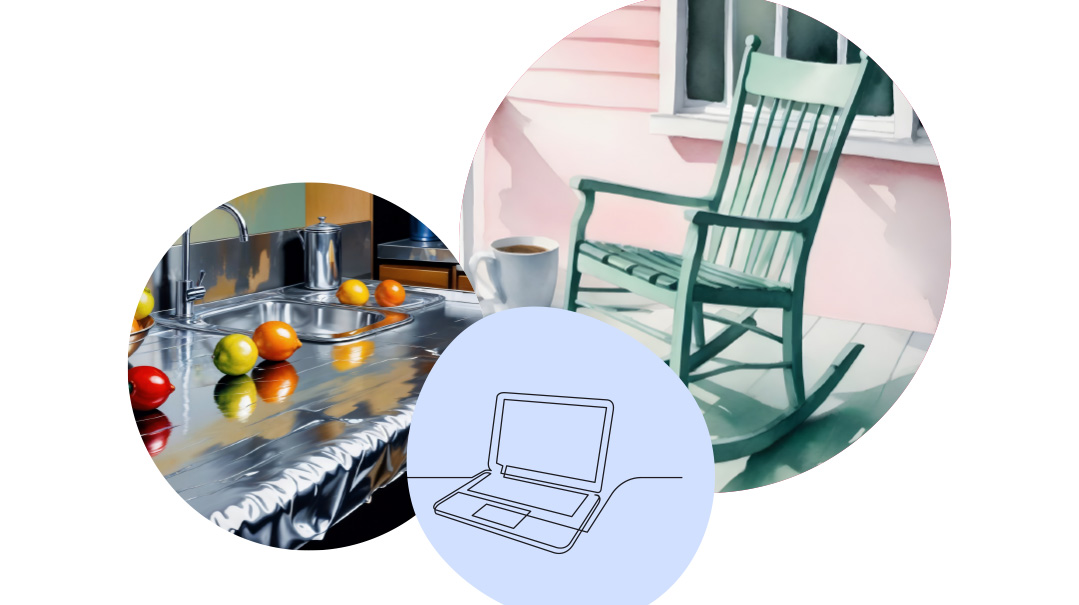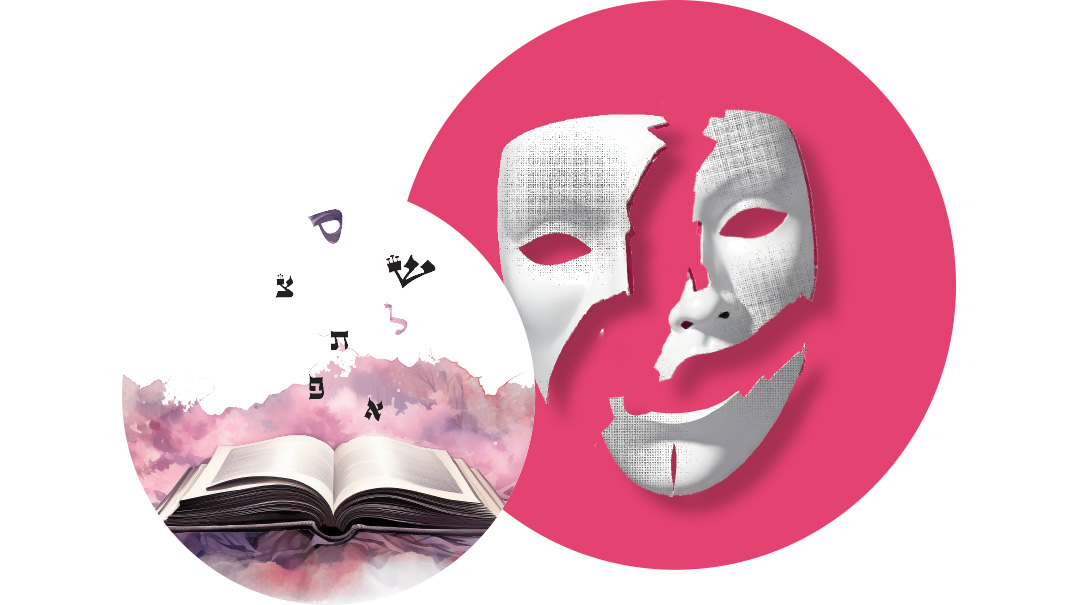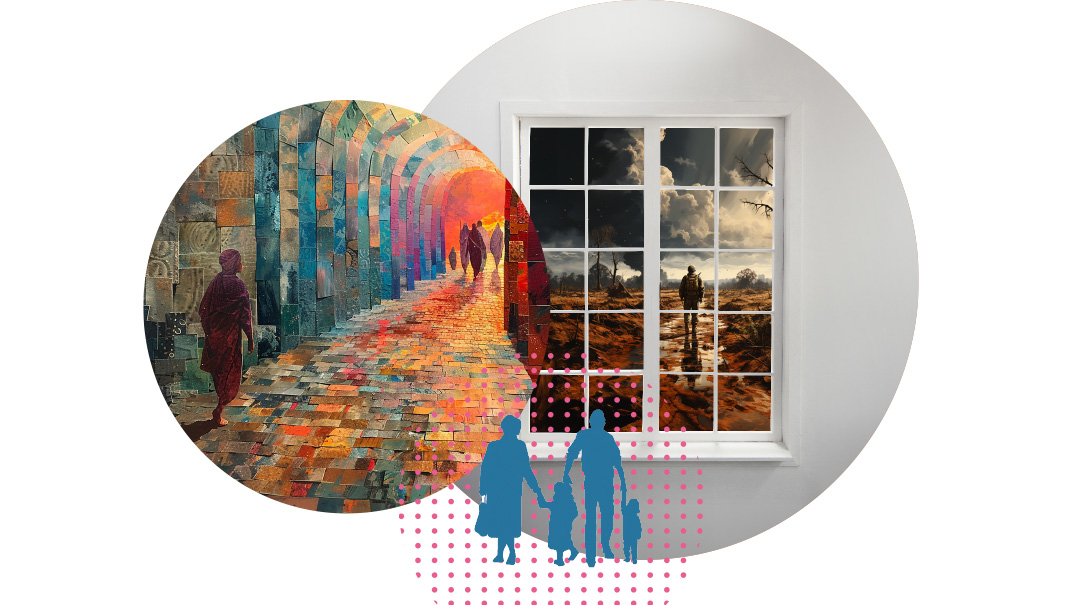Family First Inbox: Issue 774

"Take a good idea wherever you find it. Use it whenever you need it"

Ideas in All Places [Editor’s Letter / Issue 772]
Bassi Gruen’s letter about finding professional references in unexpected places can be extended to ideas as well. “Take a good idea wherever you find it,” is advice that I learned from a kitchen-remodeling magazine.
I applied this when an appliance saleswoman encouraged me to place our new oven at higher-than-counter height. Even though we didn’t buy the oven from her, I thank her for my many years of not bending down too low to open my oven.
I’ll also always be indebted to a woman I met at a shabbaton, over 40 years ago. At the end of the weekend, when we were parting, she told me: “When we see each other next, let’s not apologize for not staying in touch. Let’s just pick up where we left off.” I never did see her again. In fact, her name totally escapes me. But I certainly have said that line over and over again, both to myself and to others.
And you can take a good idea and extend it to other realms as well. As when a new kallah told me, “I got exactly what I wanted, just not in the package I expected.” Isn’t that true of so many of life’s ups and downs!
Take a good idea wherever you find it. Use it whenever you need it.
Sara Brejt
Baltimore
Et Tu, Family First? [Mountains around Jerusalem / Issue 772]
Ah, the irony. In the same week when Rosenblum decries the Sad Sad Israel portrayed in the New York Times, FF publishes its very own sad sad story à la Mimi, the character who gives up living in the Land we prayed for so that she could source whipped cream cheese.
I question the editorial judgement that greenlighted such a story. What’s next? An edgy story about standing in Target wondering if buying olive oil from the Shomron is the right thing to do? A tearjerker about the plight of a suicide bomber’s mother whose house is torn down?
Which side are you on?
Rivka Chaya Berman, RBS-G
Therapy Hurt — and Heals [Inbox / Issue 771]
I’m writing in response to the letter to the editor, “When Therapy Hurts Too Much,” about how it can be too painful to seek therapy for a traumatic upbringing.
First, I would like to express my compassion that your attempts at therapy were so very brutal. That being said, as the saying goes, “marriage is not a hospital.” Entering marriage with unprocessed issues will only exacerbate them. They will not remain buried. They will emerge either in relational distress or in physical illness.
Yes, therapy can be painful, and often is. Growth does not happen without pain. A responsible therapist will be able to gauge how much of the traumatic experience the client is capable of exploring, and how fast. Leaving a therapy session in tears or breaking down crying in between sessions is to be expected, at times. Yet the knowledge that one has a caring, reliable therapist with whom to share this anguish with makes it bearable and even healing. At times a therapist might even offer a short support phone call in between sessions in a very stressful situation.
It is my hope that people will not refrain from going to therapy because they fear pain. The alternative can be worse.
As author Jaeda DeWalt said, “Healing is more about accepting the pain and finding a way to peacefully coexist with it… We need to learn to let it wash over us, without drowning in it. Our life doesn’t have to end where the pain begins, but rather, it is where we start to mend.”
Ruchama Twersky, MSW
For the Heroes [Addicted to Change / Issue 768]
I read your article about addicts in recovery and those married to people in recovery. I too have a husband who’s in a 12-Step program; his addiction is one of the ugliest out there, and he also suffers from mental illness.
I was like a single mother, bringing up my children completely alone, physically and emotionally, while putting up with a husband who had severe erratic behaviors and took unimaginable actions in order to “feed” his addiction. He was constantly blaming, raging, manipulating and verbally or emotionally abusive. I walked on eggshells around him, all the while protecting my children, nurturing them and just trying to survive. It was a living nightmare. On the outside, I was always put together, a smile on my face, a kind word for everyone.
Eight years ago, when he went to rehab, I found out about his addiction, and what was truly going on. I have made the decision for today, together with my therapist and rabbanim, to stay in my marriage.
My husband is sober today, due to the 12-Step program that he works daily. While I am eternally grateful to Hashem for how far he has come, my life is still full of many ups and downs. This letter, however, is not about what it means for a wife to hold a family together, trying to do the will of Hashem each day, or about the days spent crying with fear and pain.
No, this letter is about those unsung heroes whom no one but Hashem knows about. This letter is about the fact that there is no organization out there that comes to your rescue when your world completely shatters. When you can‘t get out of bed but you do so anyway because there’s no choice.
This letter is for addicts’ wives who have days when they are falling apart, yet there are no neighbors bringing over hot suppers and no chesed girls coming over.
This letter is for the wives whose children cry that everyone else’s tatty takes them to Avos U’banim, and who wipe their children’s tears and tell them that their Tatty in Shamayim is more proud of the Torah that they learn with Mommy at home.
This letter is for those whose husbands cannot go to shul on Simchas Torah, but since there’s no one knocking on the door to take the boys to shul, they go alone — or stay home, their mother’s silent cries accompanying their loud ones.
This letter is for women who bring in Chanukah alone, who kasher their kitchens alone for Pesach, who make countless phone calls to find chavrusas for their sons on Shavuos, whose married children are too embarrassed to come home for Shabbos.
You are the unsung heroes of the world! You are the ones who will hasten the arrival of Mashiach!
To all those women nodding their heads and crying along with me: You’re right, no one gets it and they never will. Only our loving Father, Hashem, Who gave us this tremendous challenge, Who loves us so deeply, Who knows that this life is the best one for our neshamos, only He gets it.
And to all those reading this letter who don’t understand what I‘m talking about, please thank Hashem for a healthy, stable husband.
And I beg of you, don’t judge. You don’t know the full picture. Don’t look down on your daughter-in-law, sister, or sister-in-law. Don’t raise your eyebrow when she leaves a simchah early, or talk about it behind her back when she misses some event. She has too much going on in her life to have to deal with extra stress and pressure from those who don’t know about her hidden life.
If you knew what’s going on in her life, you would give her a standing ovation for just showing up.
Name Withheld
(Originally featured in Family First, Issue 774)
Oops! We could not locate your form.






